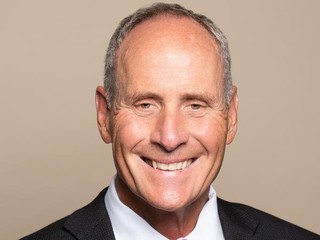Vida Health is a virtual care company that connects patients with a marketplace of providers
Steven Loeb and Bambi Francisco Roizen speak with Stephanie Tilenius, founder and CEO of Vida Health, a virtual care provider that connects patients with a marketplace of national providers who cover a number different conditions, including hypertension, obesity, diabetes, anxiety and depression.
Our goal is to understand tech breakthroughs radically changing healthcare: the way we screen, diagnose and treat conditions and measure outcomes. And whether tech is helping or hurting our well-being physically and mentally.
[This interview was first published in 2022]
Highlights from the interview:
- Tilenius’ father had multiple chronic conditions at the same time, including diabetes, obesity, CHF, COPD, and depression. He was on a lot of medications and he had multiple doctors who were not really talking to each other, so he didn't have an advocate that was looking at his continuous care on an ongoing basis and assessing the intersection of these conditions. Looking at the root causes, she could see that he needed help with exercise, sleep, nutrition, he needed devices to measure his blood pressure, his A1C, his weight, his water retention. Tilenius wanted a continuous model for his chronic conditions but nothing existed in the market, and so that's how Vida evolved.
- You could get your diabetes under control, you can get your depression under control, but you always have to watch it and your lifestyle, your sleep, your nutrition, all the medications you're taking, the exercise, meditation. There's so many things that impact those chronic conditions, and they're all interrelated; these things are inextricably linked, the mind and the body are one, and so they require ongoing investment and they require human touch and connection and understanding of how people can manage their own lives and become their own health optimizer.
- Vida didn't have mental health in the beginning but immediately, within a year, it was very clear that it had this overlap. 30 plus percent of its patients couldn't be helped without getting into mental health, so Vida followed its customer into that space.
- The company saw 8,000% growth during COVID around mental health, so there was a lot of demand for it. There was a telemedicine spike during COVID and everything went virtual, and now it seems that people do want to go back to the doctor in some cases, but not in mental health. That's where the virtual experience is sustained and people really like it.
- Vida combines technology and humans. Wired recently issued a study where they had looked at some of the clinical studies of just AI and mental health solutions and found that they didn't have outcomes. It's really hard at this stage, given where we are with chatbots and things, to really get to the human connection. Everyone needs a really personalized experience and they need human connection, especially given the last few years that we've been through. There's a lot that technology can do to engage with patients, but it enhances the provider experience and complements it. Then the provider can focus at the top of their license on the most highest impact part of the conversation, which is generally getting at the root cause, the emotional connection, and really helping motivate the person.
- The practitioners on Vida are employees of the company because then they're really committed. Some of our greatest innovations on the product side, and also clinical programs and interventions, have come from clinicians that have gotten really into the product and merged that gap between the offline clinical world and the digital world. And so, Tilenius really thinks it's important to get clinicians engaged day to day in the team. The company want to have full time employees who are fully engaged and not just doing this as a side job.
- There has been a systematic problem in health care of trying to figure out how to have an integrated approach to someone's health, with Vida call “whole health.” That means looking at their multiple conditions, looking if they have food insecurity or social determinants of health, like low health literacy or financial barriers, or that they might have diabetes and untreated depression. So, we've needed it for a long time and we've discussed in healthcare for decades about having this integrated approach. And that's what Vida has done.
Thank you to our sponsors: Advsr; a boutique M&A advisory firm. They wrote the book on startup M&A called "Magic Box Paradigm: A framework for startup acquisitions." Go to Amazon.com to get your copy. Also thanks to Stratpoint, an outsourced engineering firm and Scrubbed, an online bookkeeping firm. If you need affordable and quality engineering and bookkeeping, check them out. We highly recommend them!
Subscribe to our podcasts to get our interviews and shows as soon as they're published!




